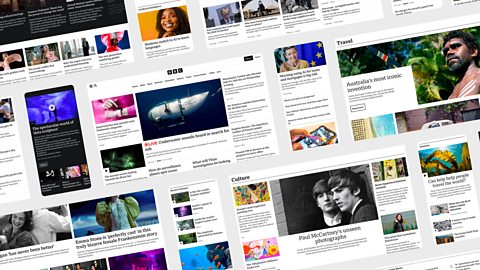News Websites - Questions
News Websites - Questions
Blog Article
The Single Strategy To Use For News Websites
Table of ContentsNot known Incorrect Statements About News Websites News Websites for BeginnersLittle Known Facts About News Websites.The smart Trick of News Websites That Nobody is Talking AboutNot known Incorrect Statements About News Websites
It was down in the UK and Brazil yet up a few other nations, such as Greece, Bulgaria, and Poland (News Websites). This year, for the first time, we inquired about the different manner ins which individuals avoid the news and found that around half of avoiders (53%) were trying to do so in a broad-brush or periodic means for example, by switching off the radio when the information began, or by scrolling past the information in social mediaYou said that you try to actively prevent information.

I'm most likely choosing to find out more light-hearted tales than I utilized to currently. M, 51, UK Switching my back on information is the only method I feel I can cope in some cases. I have to knowingly make the initiative to avert for the purpose of my very own psychological health and wellness.
News Websites Fundamentals Explained
Selective evasion of Ukraine news was highest possible in most of the countries closest to the conflict, enhancing findings from our additional study in 2015, not long after the battle had begun. Our data may not suggest an absence of passion in Ukraine from close-by nations however instead a need to take care of time or secure psychological wellness from the very real scaries of war.
Contrasting Finland with a politically polarised nation such as the USA (see next graph) that is much less impacted by the war, we find a really various pattern of topic evasion. In the USA, we discover that consumers are much more likely to avoid topics such as national politics and social justice, where disputes over issues such as gender, sexuality, and race have actually ended up being very politicised.
American politics are pretty toxic these days. I locate often that I need to disconnect from tales that just make me upset. F, 61, USA For some individuals, bitter and disruptive political debates are a reason to switch off news entirely, however, for some political upholders, evasion is typically concerning obstructing out point of views you don't intend to hear.

Everything about News Websites
Some are looking to make news more easily accessible for hard-to-reach teams, broadening the information agenda, commissioning more inspiring or positive information, or accepting useful or solutions journalism that give people a sense of hope or personal firm. In our study this year, we asked respondents about their interest in these various strategies.
This discusses why stories like Ukraine or nationwide politics carry out well with news regulars yet can at the same time turn much less interested users away (News Websites). Discerning avoiders are much less thinking about all sorts of information than non-avoiders yet in family member terms they do seem to be more thinking about favorable or solutions-based news

News Websites for Dummies
2023). This may hold true in the moment, but over time it appears to be leaving several individuals empty and less completely satisfied, which might be weakening our connection with and count on the information. Throughout markets, general rely on news (40%) and trust fund in the resources people utilize themselves (46%) are down by an additionally 2 portion factors this year.
Via the rear-view mirror, the COVID-19 count on bump is clearly noticeable in the complying with chart, though the instructions of travel later on has actually been mixed. Sometimes (e.g. Finland), the trust boost has been maintained, while in others the upturn looks more like a blip in a story of continued long-term decrease.
A few of the greatest reported levels of media criticism are discovered in countries with highest degree find more information of distrust, such as Greece, the Philippines, the USA, France, and the United Kingdom. The cheapest levels of media objection are frequently in those with greater levels of depend on, such as Finland, Norway, Denmark, and Japan.
What Does News Websites Do?
This year we asked participants about their preferences for text, audio and video when taking in news online. Typically, we discover that the majority still like to review the information (57%), instead of watch (30%) or listen to it more info here (13%), however more youthful people (under-35s) are more probable to pay attention (17%) than older teams.
Behind the averages we find significant and surprising country differences. In markets with a solid reading tradition, such as Finland and the United Kingdom, around eight in ten still prefer to read on the internet news, but in India and Thailand, around four in ten (40%) say they like to view news online, and in the Philippines that percentage mores than fifty percent (52%).
Report this page